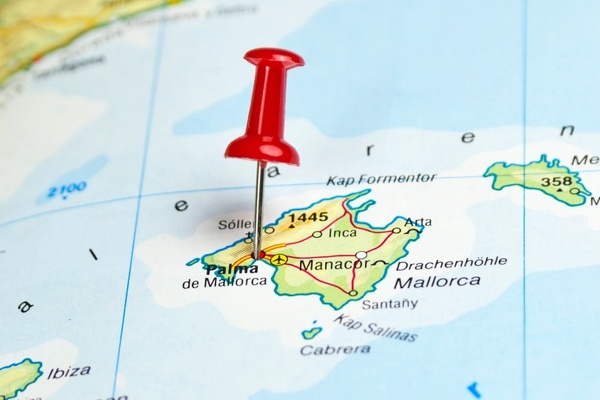'We must up the focus on gender equality at Cop26'
 Alessandra Alonso
Alessandra AlonsoCop26 has been much spoken about this month, but one area that has lacked visibility is the link between the climate crisis and gender.
That is why it may come as a surprise to you that today at Cop26 – 9 November – is fully dedicated to gender. In fact, since the start of summit, a series of gender led-debates and events have been held in Glasgow.
The reasons why gender needs a particular focus are multiple – women make 80% of household purchase decisions, including on leisure travel, and hold the key to more sustainable and value-led consumer behaviours.
Women globally are educators, they teach children about the impact of the climate crisis and the importance of respecting our planet.
Women are also among the poorest segments of population on the planet and are hugely affected by the climate crisis owing to flooding, droughts and everything in between, not to mention their children as well.
More: Travel urged to place gender equality at heart of climate decision-making
Women sit at the heart of communities as hosts and guides, yet often have limited ability to influence policy making or take part in the decision-making process.
For example, according to the World Economic Forum’s 2021 Gender Report, across the 156 countries covered by the index, women represent only 26.1% of some 35,500 parliamentary seats and just 22.6% of the more than 3,400 ministerial roles worldwide.
Yet decisions around climate are made on behalf of women and affect not only this group, but extended families and communities.
When it comes to travel and tourism, we know all too well how ravaged the industry has been by climate-related ills and Covid-19.
According to the UNWTO’s 2020 global gender report, women represent most of the tourism workforce yet primarily occupy low level roles and suffer from poor job security.
Women in Travel CIC alone helped 150 women whose jobs were impacted by Covid-19 last year.
Additionally, again according to the UNWTO, only 23% of tourism ministers globally are women. Yet the report finds "countries with a woman tourism minister have a higher score on the Global Gender Gap Index political empowerment score than those with a male tourism minister".
If we look beyond politics at the private sector, we know that in the C-suite, women are still a rarity and that women entrepreneurs – be it in tourism or more widely – lack the funding and the networks to bring their climate-related innovation to the fore.
’Voices, ideas, actions’
So what can we do as an industry to address this? The answer is plenty, even if it is in incremental steps. Please remember:
- When you talk about sustainability and regeneration, social impact is an equally important aspect of the triad.
- Gender diversity and inclusion – with all its intersectional aspects, from race to sexual orientation to disability – cannot be divorced from the sustainable goals and the climate crisis we are desperately trying to solve.
- Include all women in your plans in all destinations, within those communities, within your workforce and among all your stakeholders. Ask their viewpoint; facilitate dialogue; and ensure nothing is decided about them without them.
- Practice allyship at organisational and individual level, and collaborate with organisations and activists that can provide gender support and intelligence. Women will thank you through spending loyalty and workplace retention.
As an industry, travel and tourism is ideally placed to address climate change. Let’s ensure all women enjoy equal opportunities to make their voices, ideas and actions heard.
Alessandra Alonso is founder and director of Women in Travel CIC.
Sign up for weekday travel news and analysis straight to your inbox

Alessandra Alonso
Supplier Directory
Find contacts for 260+ travel suppliers. Type name, company or destination.














